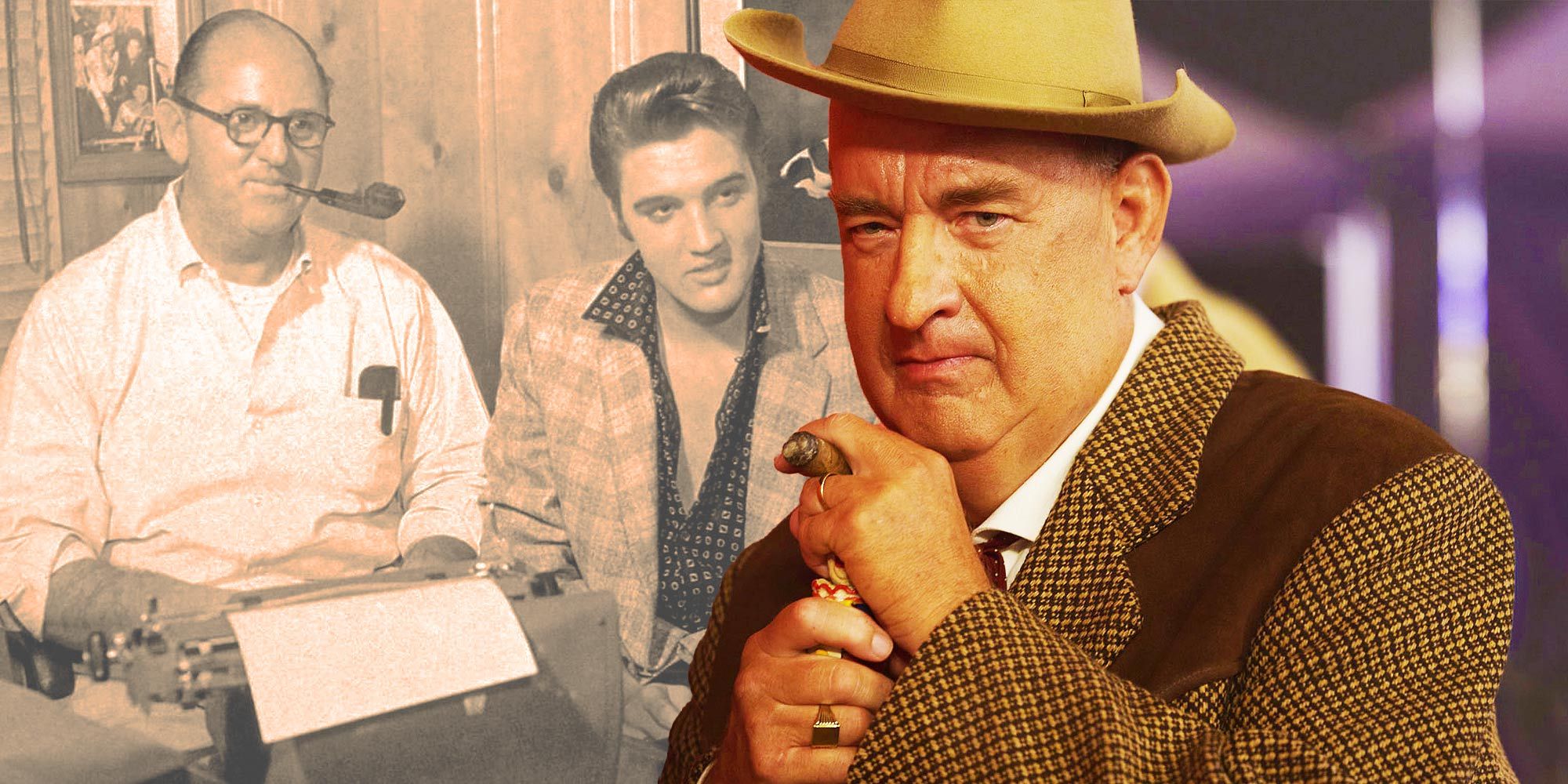Colonel Tom Parker's biographer details parts of Elvis' plot that are not true. The film follows the titular character, played by Austin Butler, as well as his long-time manager, Parker (played by Tom Hanks). The film is directed by Baz Luhrmann, who's known for bringing a fresh and explosive style to adapting well known stories. This often includes mixing modern music with films that are set during various periods in the past, a trend that he continues with Elvis.
Alanna Nash wrote a biography of Parker titled, The Colonel: The Extraordinary Story of Colonel Tom Parker and Elvis Presley, and subsequently became a source of authority on Parker. Luhrmann did not read the book himself in preparation for the film, although he says that he read notes from researchers of both Nash's book and several other books regarding Presley. Parker was born in the Netherlands and was a carnival worker before he illegally emigrated to the United States, and entered the music promotion scene.
Now, Nash speaks with Variety about how accurately Parker is portrayed in Elvis. Nash points out that one event from the film she views as false is Parker having his citizenship status threatened by secret governmental forces who wanted Presley to tame his performances in order to not corrupt the youth of America. Another part of the film which Nash claims isn't true is when Presley fires Parker on stage after Parker demands repayment from Presley for various expenses over the years. Nash says that although Presley and Parker got into a heated argument after a performance in 1974—which included Presley threatening to fire Parker and Parker threatening to quit—that neither of these threats actually came to pass. Nash also notes throughout the interview that she believes that although Parker did have glaring flaws, including taking too much money from Presley, he also made very sound business decisions for Presley, and that this aspect of his character was not highlighted as much as his antagonist side for dramatic purposes. A full quote from Nash can be read, below:
"That’s total and unequivocal bunk, a complete invention in the movie. First of all, when Colonel Parker enlisted in the U.S. Army, he declared himself a Dutch citizen, with parents born in Holland. That was fine — we took foreign nationals — but he just had to swear he’d become a U.S. citizen, which he never did, because he went AWOL. But he worked closely with the Pentagon, planning Elvis’ army career and post-army concert to raise money for the U.S.S. Arizona monument.
"He never fired him on stage, but there was an incident in Vegas in 1974 where Elvis criticized Barron Hilton from the stage for firing one of Elvis’s favorite employees. That led to a colossal shouting match afterwards with Parker and talk of firing and quitting on both their parts, with Colonel ultimately presenting a bill that the Presleys could not pay. And so things resumed as they had been. Elvis would never have been so crass as to have fired Colonel from the stage."
Nash's insight on the film's accuracy, or lack there of, in regards to Parker's character is valuable in allowing the viewer to remember that often times films based on a true story stretch that story in order to make a more cohesive and entertaining film. This is not to say that every biopic made is unequivocally false, but rather a film with a cast based on real people, such as Elvis, shouldn't be seen as a replacement for learning the real history. This gives the viewer the opportunity to understand a potentially more historically accurate account than what is seen on screen while also being able to enjoy the film for its creativity.
Learning this information from Nash offers an additional lens to watch Elvis through, one that considers Parker's true character to be more nuanced than the character depicted in Elvis. Regardless of Parker's accuracy in terms of his character, the contentious relationships that derive between managers and talent is a familiar trope, but nonetheless one that adds a significant amount of tension that helps moves the plot along and keep viewers engaged. Viewers who have not yet seen Elvis, or even viewers now looking for a second watch, can keep this information in mind when they check out the film, currently playing in theaters.
Sources: Variety


